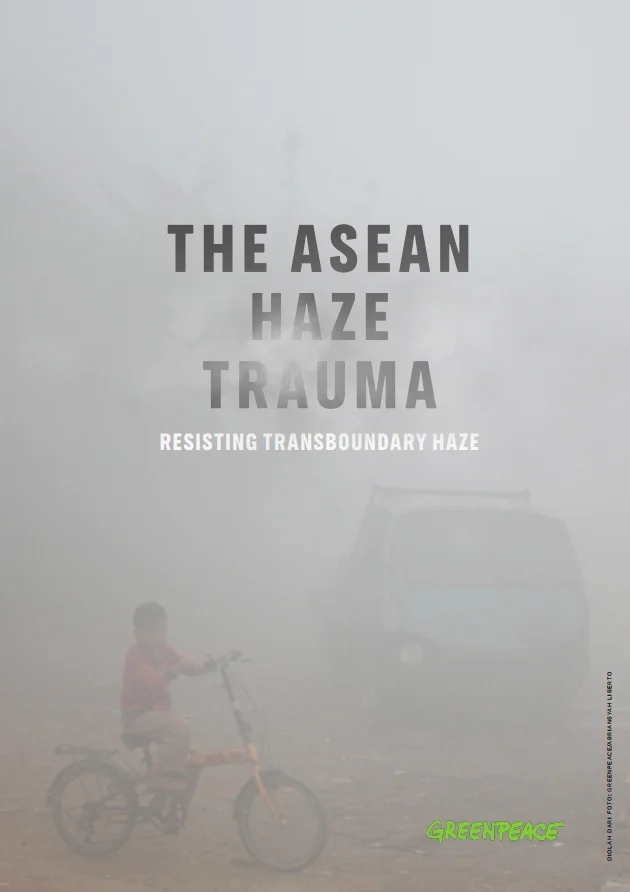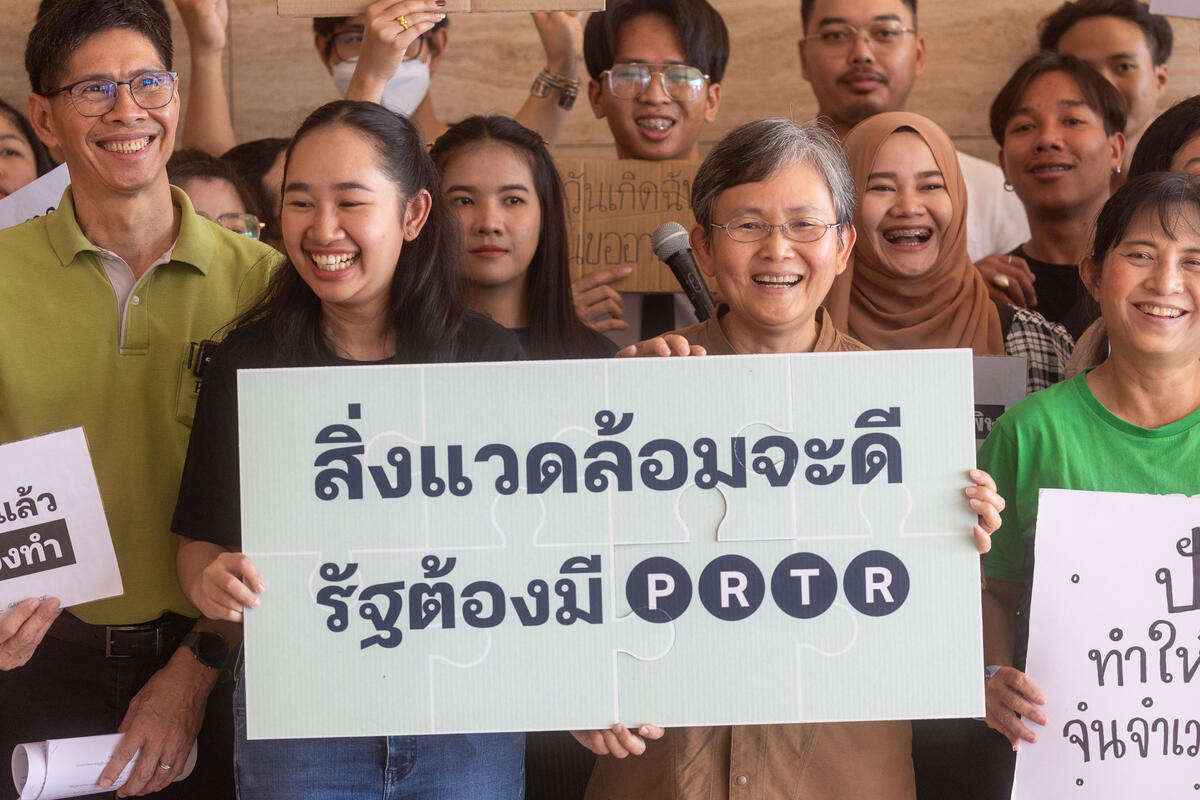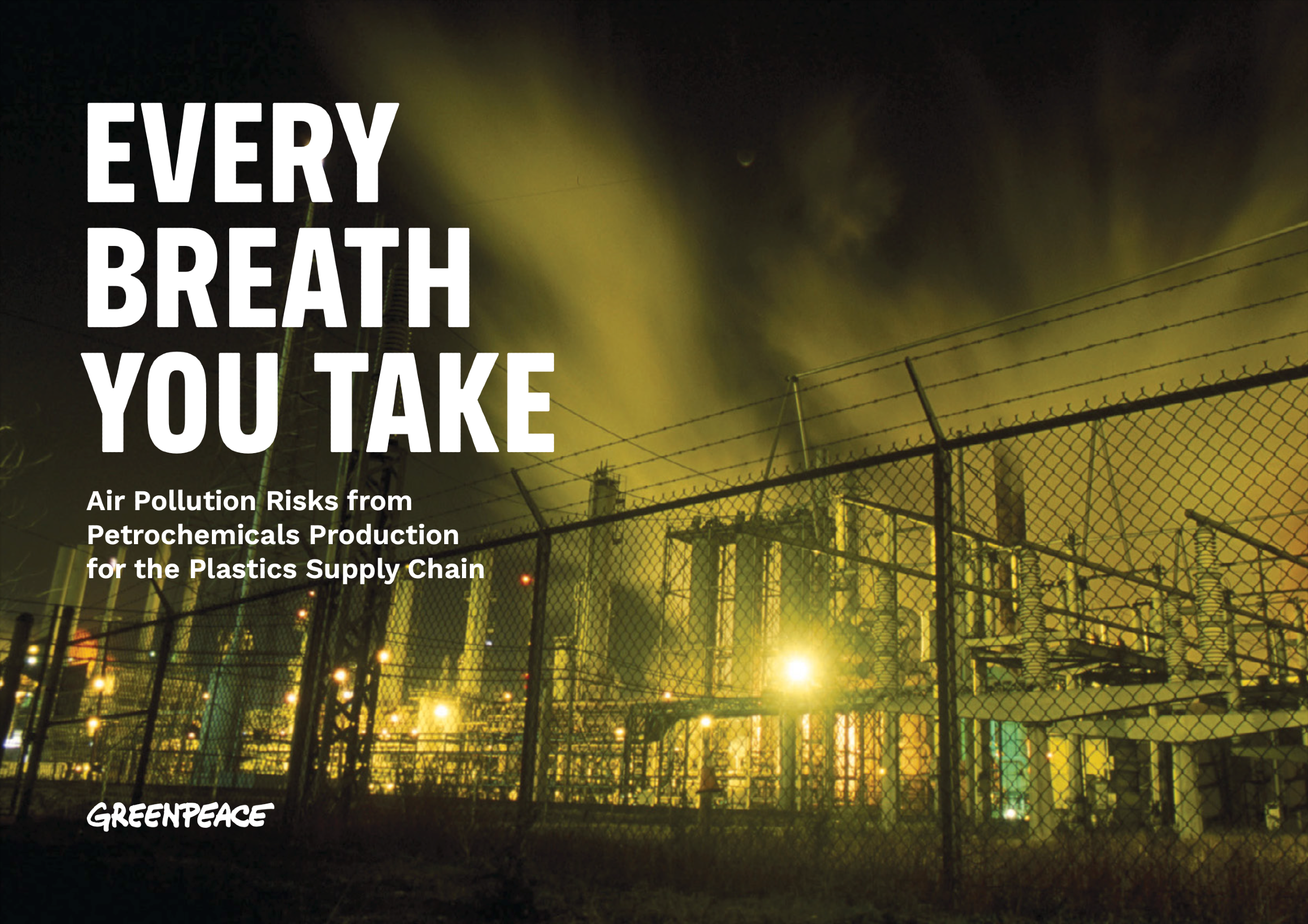Singapore, 6 June 2023 – With haze on the horizon, ministers from five member states of the Association of Southeast Asian Nations (ASEAN) are now in Singapore to discuss the development of the second roadmap on regional cooperation on Transboundary Haze pollution.
Heng Kiah Chun, Regional Campaign Strategist for Greenpeace Southeast Asia said:
“Yesterday was World Environment Day- a good reminder for ASEAN to act decisively on crucial matters such as the deteriorating air quality and deforestation due to forest fires that continue to occur within our borders, impacting millions every year.
“For decades, ASEAN citizens have long endured breathing toxic air whenever forest fire season starts. People have been so used to the haze without being aware of the dangers it poses. It was only recently that we learned how exposure from smoke from the 2015 forest fires resulted to 100,300 premature deaths in the region. Millions have suffered from respiratory illness because of exposure to transboundary haze that could have been avoided through firm and timely government action.
“Climate change is also compounding the problem. With the high likelihood of El Niño, there is a possibility of the weather getting hotter and drier than the typical conditions during the normal southwest monsoon, thus enhancing the risks of transboundary haze this year.
“ASEAN ministers must do away with national pride issues and use the next two days to strengthen and improve the regional roadmap on Transboundary Haze to protect ASEAN citizens and hold businesses and industries accountable for fanning the flames.”
Ahead of this week’s Ministerial Meeting on Transboundary Haze Pollution, Greenpeace Southeast Asia calls on ASEAN states to enact a domestic transboundary haze law in their respective countries where forest fires are known to persist. It is important to enact domestic transboundary haze pollution legislation to ensure that companies are not contributing to haze locally and abroad.
In particular, Greenpeace Southeast Asia demands ASEAN states to :
- Develop a regional legal framework to hold corporate entities accountable for domestic forest fires due to peatland clearance and agricultural residue burning. Not only would this regulate companies and their supply chains, but also promote tighter coordination among ASEAN members to immediately prevent the causes of forest fires. Furthermore, it must compel companies to pay reparations to victims of transboundary haze pollution, as well as accelerate preventive action in hotspot areas through health support.
- Mandate all companies known for clearing out forests to publicly disclose and publish concession maps to be shared across all ASEAN member states to improve transparency in their supply chains.
- Agree on a standardized air quality indicator to be used in all ASEAN member states to monitor and track air pollution based on a common methodology and act accordingly. Using a low-cost data sensor, e.g. IQAir, will be useful, particularly in countries where there are no government monitoring stations set up.
Media Contacts in Singapore:
Therese Salvador, Regional Media Coordinator, Greenpeace Southeast Asia +639178228734 | [email protected]
Heng Kiah Chun, Regional Campaign Strategist, Greenpeace Southeast Asia
+6016-3198278 l [email protected]



